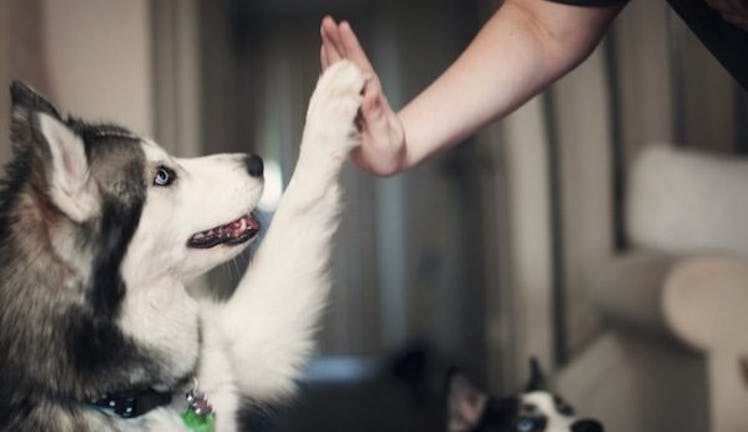
Dogs Can Tell If You're Happy Or Angry Just By Looking At Your Face
If you've ever been in a horrible mood and felt like your dog's cuddling was actually an attempt to make you feel better, you may be right.
According to a recent study conducted by scientists in Vienna, Austria, dogs can discern between an angry expression and a happy expression even when telling clues, such as body language and tone of voice, are absent.
The study, published in Current Biology, had scientists train a random selection of dogs to discriminate between the two expressions using photographs of people making happy or mad faces.
Next, the scientists tested the dogs on their abilities to distinguish between the expressions by presenting each with different pictures than they'd originally been trained to recognize.
You can read the process of the study in detail here;.
But essentially, the scientists learned that the dogs were able to distinguish between the two expressions with 70-80 percent accuracy.
The high rate of recognition lessens the probability that the dogs selected the correct expressions randomly; if that were the case, the rate of success would be closer to 50 percent.
The scientists note that this is the first study of its kind to show animals can discriminate between emotional expressions without additional stimuli. Similar studies have been conducted in the past, but none with promising results.
Further, they note that while the dogs can distinguish between the faces, what they actually understand about the expressions (the mood behind the face) is still unclear.
But the scientists do admit it's likely dogs understand, on some level, that smiles are good and frowns are bad. If you ask me, that's really all they need to know.
So next time you're feeling happy, make sure to flash your pup those pearly whites — he'll be happy to know you're happy, too.
Citations: Dogs Can Tell The Difference Between Happy And Angry Faces (I Fucking Love Science), Dogs know that smile on your face (EurekAlert)